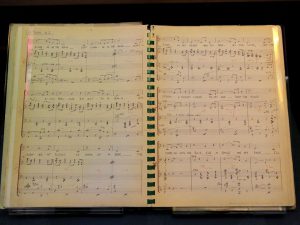Once it reached a certain level, the ever-increasing computing power finally made it possible for virtually anyone to try and make it in the music industry. Today even an average smartphone CPU packs enough transistors to perform calculations on a massive scale, which in turn allows emulations of near-perfect sounding live instruments or complex analog synthesizers. In the world where any existing tech limits are effectively removed, it all comes down to two things: talent and focus.
Let’s suppose you are truly gifted, but you have a hard time focusing; in fact, let’s make this a priority problem. Even so, this is probably great news, because every problem can eventually be solved, but being a natural is something you’re only born with.
Locate Your Primary Distraction and Crush It
Winning a small battle is a great start on your way to win a war. If you live in a world of distractions, good advice is to take a deep breath and focus on the one thing you think is your major distraction. If it’s a physical object, remove it; if it’s a thought, suppress it. All that matters is that you engage the enemy and score.
Work Less to Achieve More
While logic may suggest that this kind of advice might sound counterproductive, your brain and your ability to focus do experience fatigue over time, much like your physical body. It’s a rare, luxurious commodity which depletes quickly and should be treated as such. Once your creativity is all used up, it takes a lot of time to be replenished, so it must be used sparingly.
Take Your Time to Improve Focusing Skills

Once again, similar to your physical body, your brain and your focus grow stronger as you exercise, but they can also suffer terribly from overtraining. Take your time to patiently learn how to avoid distractions and further improve your focus – trying to walk around obstacles instead of learning how to properly overcome them might just send you right back to where you started.
Define Your Main Point of Focus
Finding a proper focal point is the alpha and omega, the foundation of everything. If your ultimate goal is to become a master in the art of making music, the only way to do it is to, well, do it. Hours and hours of practice and hard work is the only thing that will help you achieve this mastery. It is really important to make a distinction between becoming a master music composer and becoming an expert about music – the former is achieved through serious work, and the latter is simply a theoretical achievement.
